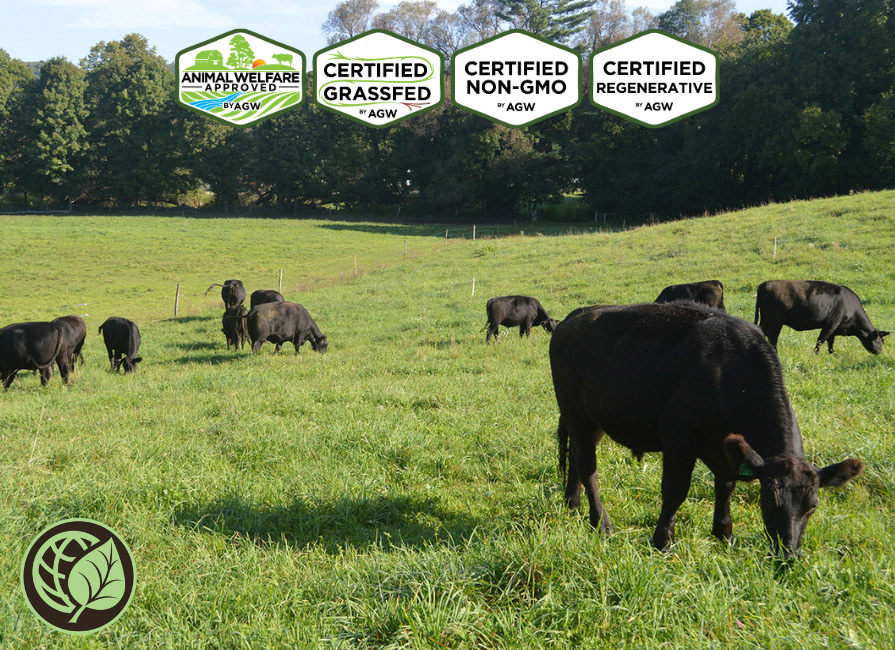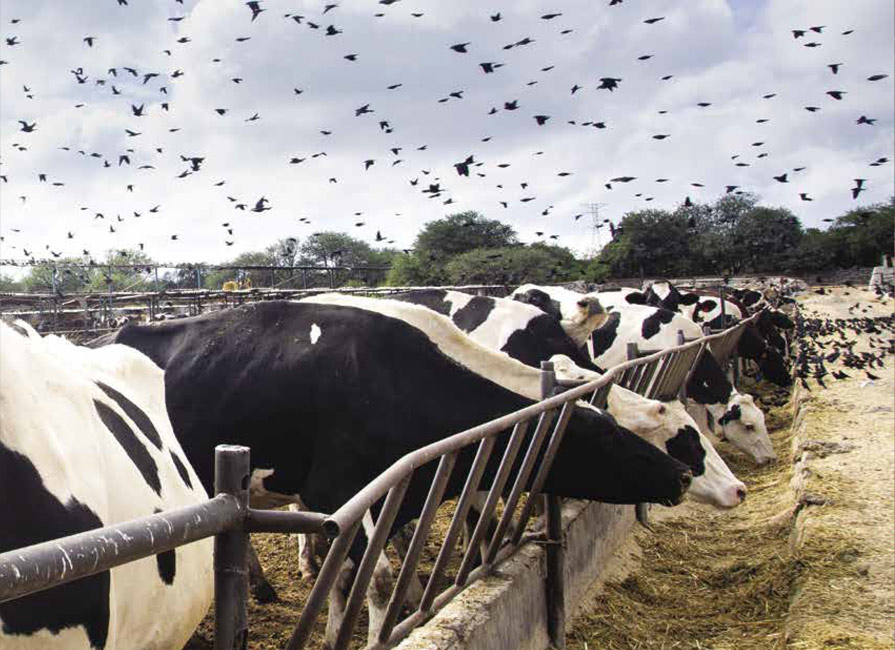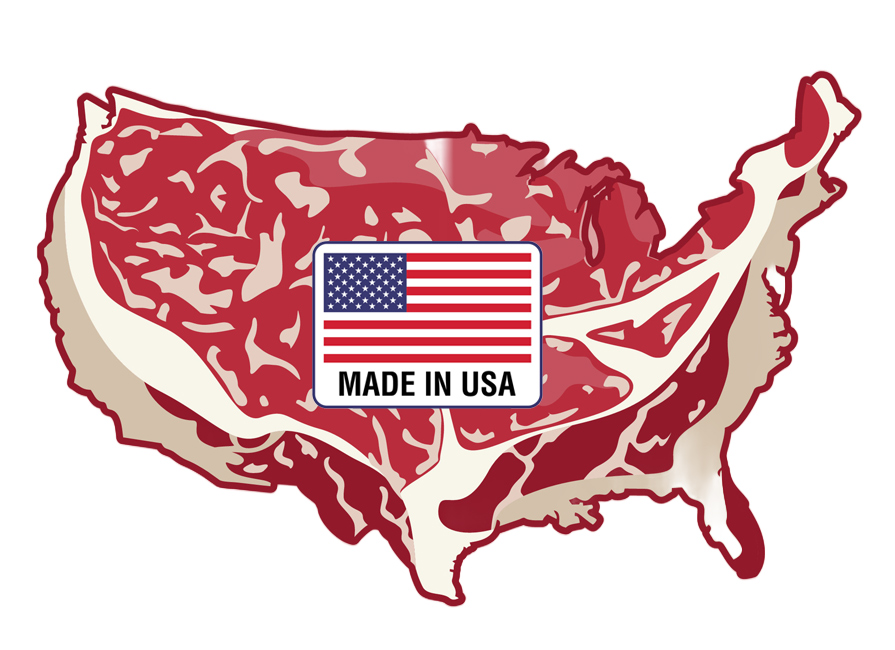I read Michael Grunwald’s recent New York Times Opinion piece, Sorry, but This Is the…
GE Crop Thriller Leaves Bond and Bourne for Dust
It’s the kind of farfetched plot you’d expect to see in a James Bond or Jason Bourne movie. You know, where the bad guys are found to be secretly coercing governments – and even entire countries – to aid corporate global domination, and where good old Felix from the CIA saves the day and helps Mr. Bond defeat the evildoers.
But in a bizarre twist to the plot, it now looks like the real-life U.S. Government officials have actually been working for the likes of Monsanto and the Big Ag lobby all along. A devastating new report by Food & Water Watch – entitled Biotech Ambassadors: How the US State Department Promotes the Seed Industry’s Global Agenda – reveals that the U.S. State Department has been aggressively pursuing foreign food and agricultural policies that seek to benefit the vested interests of the largest biotech seed corporations – often collaborating directly with representatives from Monsanto, DuPont Pioneer, Syngenta, Bayer CropScience and Dow Agrochemical.
If you believe in democracy and the free market, this new report will make for somber reading. Analyzing five years of State Department diplomatic cables between 2005 to 2009, the Food & Water Watch report exposes a concerted and coordinated global strategy by the U.S. State Department to promote genetically engineered (GE) crop technology and corporate interests in other countries of the world, often against the overwhelming opposition of the public and governments, and to the near exclusion of other potentially more sustainable – and more appropriate – alternatives. Remember, too, that the U.S. State Department’s work to promote Monsanto and GE crops outlined in this new report would have all been funded by us – the U.S. taxpayer. As if Monsanto was short of a few dollars for its own publicity work…
It’s fair to say that agricultural biotechnology dominates U.S. corn, soybean and cotton production. According to Food & Water Watch, by 2009, nearly all (93 percent) of U.S. soybeans and four-fifths (80 percent) of U.S. corn cultivated were grown from GE seeds covered by Monsanto patents. Whether or not the public is actually aware they’re consuming GE products on a daily basis is another question entirely: Despite the fact that over 60 other countries require the labeling of GE foods, Big Ag is doing all it can to ensure that U.S. consumers remain completely in the dark over what they’re eating.
But while GE seeds dominate U.S. commodity crop production, it might surprise you to know that most of the world actually remains steadfastly GE-free. Although the first GE crops were introduced in the U.S. almost 20 years ago, just five countries – the US, Brazil, Argentina, Canada and India – accounted for almost 90 percent of all GE crops sown in 2012. The fact is that the rest of the world is right to be suspicious, because GE is a failing technology. Despite all the golden promises of feeding the world, the only major GE crops on the market are designed to either resist proprietary herbicides or produce their own pesticides. As was predicted, both technologies are now experiencing significant problems in the countries where they are grown, with the widespread emergence of resistant weeds and pests. Mounting calls in the U.S. for the labeling of GE foods also represents a huge problem for the likes of Monsanto: What will happen to demand for GE seeds once consumers actually have a real choice over whether or not they consume GE food?
In light of such challenges, the corporate biotech giants need the power of the U.S. State Department to help develop new markets – and thus ensure continued profit – by forcing more countries, more farmers and more consumers to accept, cultivate and eat their products. Biotech Ambassadors reveals that the U.S. State Department has lobbied foreign governments to adopt pro-GE policies and laws, operated a rigorous public relations campaign to improve the image of biotechnology, and challenged commonsense biotechnology safeguards and rules –a including opposing laws requiring the labeling of genetically engineered (GE) foods in other countries. It’s fascinating insight into the tactics and goals of the State Department and its closely coordinated efforts with the biotech industry to undermine the rights of other nations to determine their own food and agricultural policies and objectives.
Highlights – or should that be lowlights? – of Food & Water Watch’s new report include evidence that the U.S. State Department has actively targeted foreign reporters, hosted and coordinated lavish pro-biotech conferences and public events, and paid for foreign opinion-makers to visit the U.S. on high-profile and extravagant trips in an effort to improve the image of GE crops overseas – and overcome widespread public opposition to GE food and crops in other countries. The report reveals that the U.S. State Department has coordinated efforts to lobby countries in the developing world to pass legislation and implement regulations which would benefit the biotech seed industry, including in Kenya, Ghana and Nigeria, and that the U.S. State Department has worked with the U.S. Trade Representative to promote the export of biotech crops and to force nations that do not want these imports to accept U.S. biotech foods and crops, using bullying tactics and threats. You just couldn’t make some of this stuff up.
For example, the cables reveal that the U.S. embassy in Paris advised Washington in 2007 to start a military-style trade war against any European Union country that opposed GE crops. One of cables is from Craig Stapleton, the U.S. ambassador to France from 2005-2009. He expresses his concern that France might soon pass laws that could hamper the expansion of GE crops in Europe, and calls on Washington to punish the EU – particularly countries not supporting the use of GE crops. The language used is the kind of stuff you’d expect in a James Bond movie:
“Country team Paris recommends that we calibrate a target retaliation list that causes some pain across the EU since this is a collective responsibility, but that also focuses in part on the worst culprits… The list should be measured rather than vicious and must be sustainable over the long term, since we should not expect an early victory… Moving to retaliation will make clear that the current path has real costs to EU interests and could help strengthen European pro-biotech voices.”
The Wikileaks cables also reveal that U.S. diplomats have been working directly for GE companies such as Monsanto, with one of the cables from the U.S. Embassy in Madrid even warning that: “If Spain falls, the rest of Europe will follow.” Is it just me, or does this sound like the paranoid Cold War rhetoric of the 1950s? It’s hard to believe that these are recent communications from senior U.S. diplomats are simply about the possible EU public rejection of GE crops – what about the freedom of choice?
No one can ignore the immense challenges we now face in our efforts to feed future global populations, particularly in a world of ever-diminishing natural resources and the looming threat of climate change. We are going to need all available technology, as well as diverse agricultural strategies to feed ourselves sustainably. But despite the fact that Big Ag is doing everything it can to convince us that the widespread adoption of GE crops is our only chance to stave off worldwide hunger, it’s now widely acknowledged that GE technology is not the panacea we’ve been led to believe.
Indeed, numerous reports and policy documents are now singing from the same hymn sheet, calling for a wholesale shift in food production and consumption. For example, the increasingly influential International Assessment of Agricultural Knowledge, Science and Technology for Development (IAASTD) published the findings of a three-year project involving 400 independent scientists and development experts from across the world. It’s the one report that Big Ag doesn’t want you to read. The IAASTD report makes fascinating reading and concludes that small-scale farming and so-called agro-ecological practices, such as organic farming, have a vital role to play in feeding the world in the future. The IAASTD also questioned the role of GE crops in feeding the world, concluding that the high costs for seeds and chemicals, uncertain yields, and the potential to undermine local food security – and place control over food production in the hands of a few powerful global corporations – makes GE technology a poor choice for the developing world.
In March 2011, the United Nations’ Agro-ecology and The Right to Food report stated that small-scale farmers can double food production within 10 years in critical regions by using agro-ecological methods. Based on an extensive review of the recent scientific literature, the study called for a fundamental shift towards agroecology and supporting independent farms as a way to boost food production and improve the situation of the world’s poorest. Similarly, the UN’s Dead Planet, Living Planet: Biodiversity and ecosystem restoration for sustainable development recommends a blend of the new and the old: pest management using natural predators, intercropping agroforestry and green manures.
Forget Monsanto’s claims of “feeding the world,” or “sustainable agriculture,” or “protecting the environment.” The Food & Water Report reveals once again that corporate interests are the driving force behind GE technology. The reality is that GE crops were developed by corporate giants like Monsanto, Bayer and Syngenta to maximize profits for their shareholders – nothing more, nothing less. And before the usual trolls start discrediting me as a Luddite, let me say that I have no problem with the science of biotechnology per se. Indeed, I am aware that this science can help us to select and breed better crops through non-risk technologies like Marker Assisted Selection, which does not produce GE organisms. Only last week, the BBC reported that UK scientists have developed a new “superwheat” which has the potential to increase yields by 30 percent – all without the use of GE technology.
No, my problem with biotechnology is that the science has been hijacked by corporate interests, and that the subsequent wholesale rush to patent plant genes as the intellectual property of a handful of multi-national corporations is placing the control of global food production directly into their hands. Food & Water Watch’s report reveals that even our own Government officials are now acting like Big Ag’s hired hoods, coercing, threatening and bullying other countries that have been so-far unwilling to adopt this failing technology. At a time of rising global food insecurity and environmental concern, do we really want the future direction of global food production to be influenced and manipulated by what is essentially corporate bullying and short-term greed?
Within hours of the report, Monsanto issued a petulant post, attempting to somehow dismiss the new report as “old news.” Yet Monsanto failed to address the real issues which will once again reignite public concerns. The Food & Water Report is very real news: It provides a thorough and highly detailed analysis of the Wikileaks cables, exposing the unhealthy relationship between Monsanto and our government, and how our tax money is being used to promote the special interests of the multi-billion-dollar biotech industry above all other alternatives. It also reveals just how far these corporations are willing to go to secure their global interests. Old news?! Who are they trying to fool…




